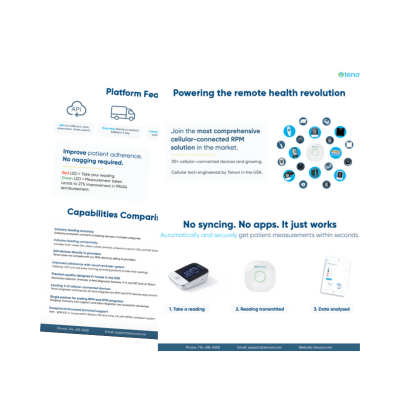A new remote health innovation has been approved for at-home health monitoring in cancer patients. Entia, a data analytics and remote patient monitoring company dedicated to improving cancer patient experiences, received approval for the world’s first at-home blood count analyzer for improved personalized and proactive cancer treatment.
The article examines how this new remote technology for cancer patients can enable more personalized, proactive care by giving providers real-time data insights, reducing burdens on the healthcare system, and empowering patients to take an active role in monitoring their health from home.
The Challenges of Traditional Cancer Monitoring
Cancer treatment is a complex journey for patients. Chemotherapy can lead to varying outcomes and side effects for each individual patient. Therefore, regular health monitoring is vital to detect potential complications.
One such complication is febrile neutropenia, a common side effect that weakens the immune system and increases the risk of serious infections. Cancer patients need frequent blood monitoring. Traditionally, blood monitoring is conducted during outpatient appointments. Frequent appointments are time-consuming, expensive, and resource-intensive for both patients and healthcare providers.
Entia’s At-Home Blood Count Analyzer
The ability to for patients to use an at-home blood count analyzer removes the need for frequent appointments. At-home monitoring allows patients to take an active role in their care from the comfort of home. The medical device is about the size of a laptop. It allows patients to perform a comprehensive full blood analysis using only a single drop of blood.
The results are then securely transmitted to the patient’s healthcare provider. The provider reviews the results in a remote monitoring dashboard for a comprehensive view of the patient’s health without the need for frequent office visits.
Benefits for Patients and Healthcare Providers
With at-home health monitoring and testing of symptoms and vital signs, the blood count analyzer also alleviates the time and demands of routine assessments. This reduces time toxicity, significantly impacting a patient’s quality of life. The increased frequency of monitoring enables more personalized care. Healthcare professionals are able to identify and address potential issues promptly.
The real-time insights a remote blood count analyzer provides healthcare professionals data to mitigate costly and challenging hospitalizations. It also unlocks new possibilities for developing AI-based predictive tools that enhance clinical decision-making.
Driving a Preventative Model of Care
Entia’s blood count analyzer is a result of collaborative efforts with leading cancer institutes and identifying major pain points for patients and providers. For instance, there is a need for a more individualized understanding of patients’ health during therapy. This new solution is an example of a shift in the healthcare industry toward more personalized and proactive treatment pathways.
By freeing up hospital appointments and enabling early intervention to address potential complications, the blood count analyzer could save time and resources for healthcare providers currently facing staff shortages. Remote health technologies in cancer care continue to streamline services, improve clinic capacity, and enhance the overall experience for patients.
As the industry continues to embrace digital health in cancer care, Entia’s at-home blood count analyzer is an example of how technology empowers patients, alleviates burdens on healthcare systems, and advances personalized, proactive, and patient-centric cancer care.


